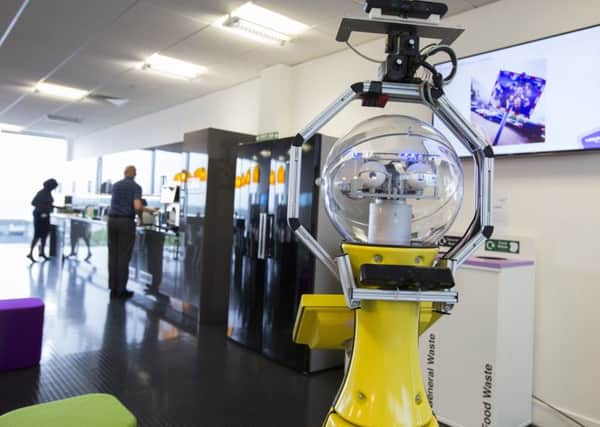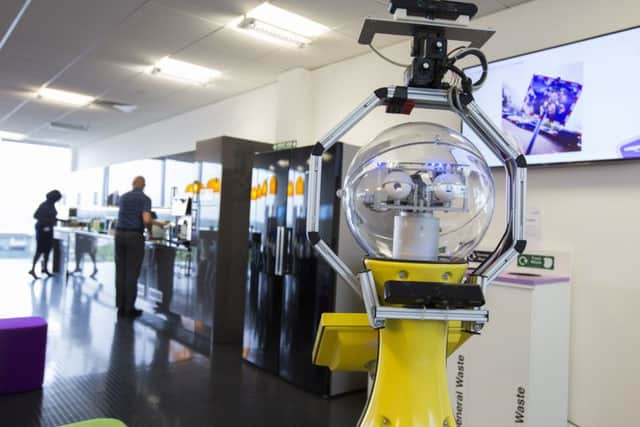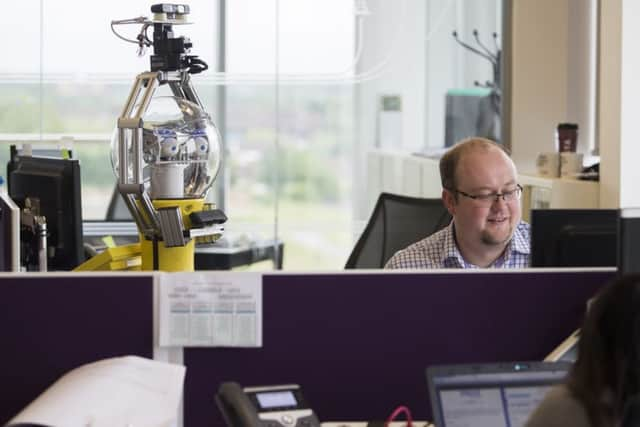UPDATED WITH VIDEO: Meet Betty the robot - Milton Keynes' perfect office manager


Bug-eyed Betty will carry out tasks including patrolling the offices, collating data on clutter and noise, and checking fire doors are closed and desks are clear.
She will also be tasked with greeting guests at reception when visitors come to see the catapult’s famous driverless pod cars.
Advertisement
Hide AdAdvertisement
Hide AdBetty is a highly sophisticated robot, running Artificial Intelligence-driven software developed by an international research team led by the University of Birmingham.


This software enables her to process all the information she needs to map and navigate her environment, learning as she does so.
“Using cameras and scanners she is able to create a map of her surrounding area, identifying desks, chairs and other objects that she must negotiate when she is moving around, as well as detecting people’s movement through activity recognition,” said a spokesman for the Transport Systems Catapult.
Betty is part of the £7.2 million EU-funded STRANDS project where robots are learning how to act intelligently and independently in real-world environments while understanding 3D space and how this changes over time from milliseconds to months.
Advertisement
Hide AdAdvertisement
Hide AdThe project team were searching for offices to trial Betty and picked the high tech TSC as the perfect place.


The catapult’s chief operating officer Mark Ruddy said: “At the TSC, innovation and new technologies are at the core of our business so we are excited to be hosting the STRANDS project. Thanks to our ongoing work on autonomous technology, Betty should feel right at home in the TSC’s facilities.
“We hope that we can learn from her as much as she can learn from us during her stay.”
He added: “We have yet to see her interact with one of the LUTZ Pathfinder Autonomous Pods!”
Advertisement
Hide AdAdvertisement
Hide AdDr Nick Hawes, from the School of Computer Science at the University of Birmingham, who leads the STRANDS project, said, “For robots to work alongside humans in normal work environments it is important that they are both robust enough to operate autonomously without expert help, and that they learn to adapt to their environments to improve their performance.”


He added; “ Betty demonstrates both these abilities in a real working environment: we expect her to operate for two months without expert input, whilst using cutting-edge AI techniques to increase her understanding of the world around her.”